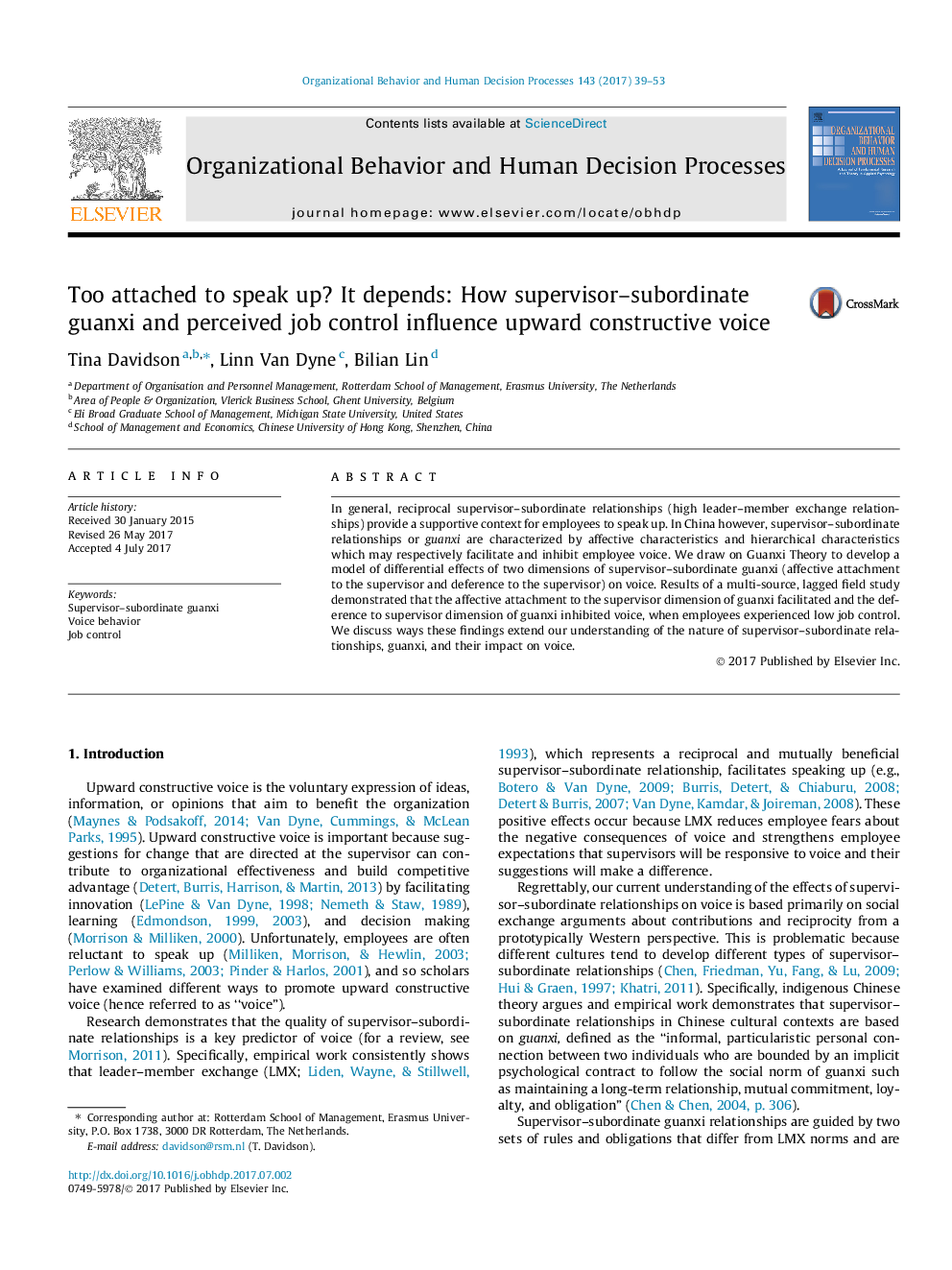| Article ID | Journal | Published Year | Pages | File Type |
|---|---|---|---|---|
| 7248081 | Organizational Behavior and Human Decision Processes | 2017 | 15 Pages |
Abstract
In general, reciprocal supervisor-subordinate relationships (high leader-member exchange relationships) provide a supportive context for employees to speak up. In China however, supervisor-subordinate relationships or guanxi are characterized by affective characteristics and hierarchical characteristics which may respectively facilitate and inhibit employee voice. We draw on Guanxi Theory to develop a model of differential effects of two dimensions of supervisor-subordinate guanxi (affective attachment to the supervisor and deference to the supervisor) on voice. Results of a multi-source, lagged field study demonstrated that the affective attachment to the supervisor dimension of guanxi facilitated and the deference to supervisor dimension of guanxi inhibited voice, when employees experienced low job control. We discuss ways these findings extend our understanding of the nature of supervisor-subordinate relationships, guanxi, and their impact on voice.
Keywords
Related Topics
Social Sciences and Humanities
Business, Management and Accounting
Marketing
Authors
Tina Davidson, Linn Van Dyne, Bilian Lin,
